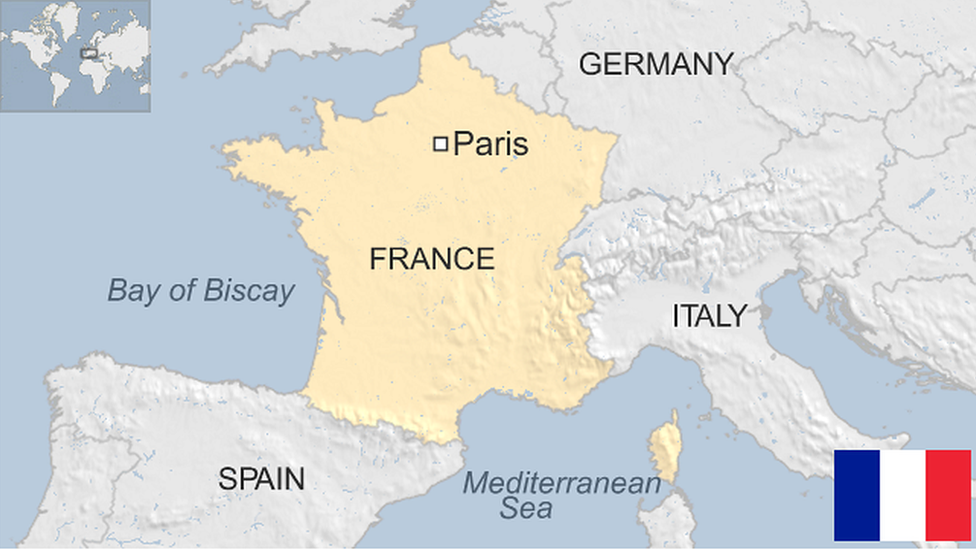Fired Vancouver waiter case: Are the French really rude?
- Published
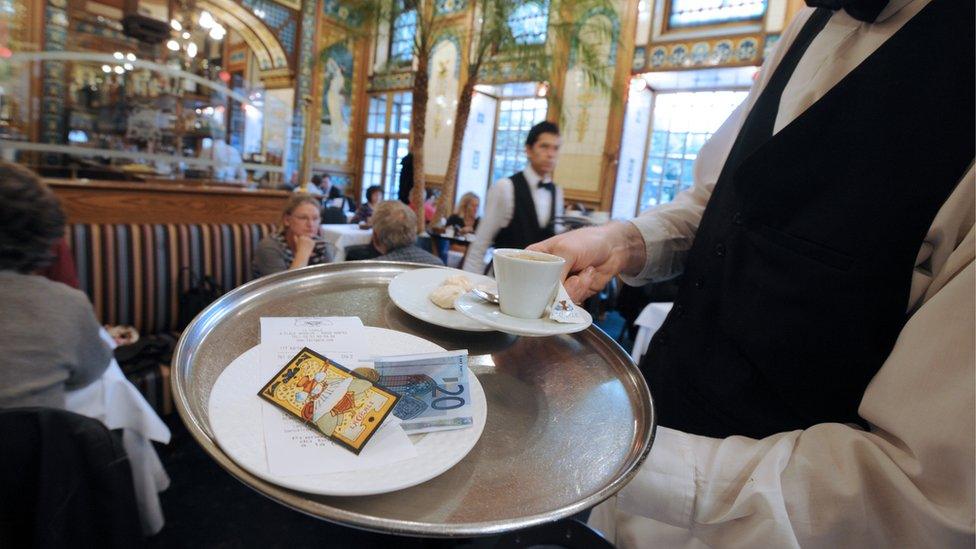
The (mis)behaviour of French waiters has long been a topic of heated discussions
A waiter in Canada has claimed he was discriminated against after being fired for "rude" behaviour. After all, he said, he was just being, well, French.
Eh bien, it's true that the French have a reputation for being a bit offhand. But are they really?
Take meeting a new person. In many cultures, greeting someone you don't know warmly is almost instinctive. Not so for the French - and definitely not for Parisians.
But perhaps this isn't intended to be rude, and is instead down to a misunderstanding.
Talking to strangers, let alone smiling at them, can be seen as intrusive, says 26-year-old Marie Castelin, from Bordeaux, southern France, who has lived in London for four years.

Some people like to use manners as a way to express their identity, says Marie Castelin
"[The French] don't like smiling... They think, 'I don't know you so I'm not going to say hello'," she says.
It doesn't mean they don't like you; they'll probably save that smile (or any other sign of affection) for when you know each other a bit better.
Straight to the point
Many French are no fans of small talk either - forget about your weather comments.
They may cut short unnecessary conversations, and get straight to the point, which could come as a shock to the uninitiated.

The French reserve their nice behaviour for those they really know, says Amélie Cauchella
He said French culture "tends to be more direct and expressive".
But his employers, Milestones restaurant, said he used an "aggressive tone and nature" with colleagues.
A Google search of the phrase "Are the French rude" reveals dozens of tourists' bad experiences; waiters seem to top the list of offenders.
But both French people and foreigners are also quick to dispute the stereotype., external
"It's not that the French are rude but they're not like the English," says 21-year-old Amélie Cauchella, from the western city of Nantes, who has worked as a waitress in London since September.
"You're nicer with friends than with people you don't know, like a customer."
'We're particular'
France, of course, has its own obsession with etiquette and formality.
It's just that its complex rules dictating table manners and even how to say "hello", external differ from other cultures.
But those differences don't always justify people's behaviour, says Marie Castelin.
"I have the feeling that some French use it as an excuse. Some people think 'We're particular, you should know it and that's it'," she says.
A conflict culture?
Julien Mainguy, co-founder of BC Talents, helps francophones from Europe integrate into the workforce in British Columbia.
"The culture in Canada, it's a non-conflict culture, particularly in the professional area."
Pierre Massuard, from central Tours, knows it well.

The French approach is not always very friendly, says Pierre Massuard
He manages a restaurant in London, where he has lived for seven years, and says: "Whenever I hire a French waiter it's always really hard.
"Because they have a different approach to the business and it isn't as casual and friendly."
Finally, Paris is not France
Paris is home to France's elite and many admit that being rude or arrogant there can sometimes seem like a social value.
As it's the country's capital, it may also be easy to take the behaviour of Parisians as a snapshot of how people behave in the rest of the country.
Not so fast, say the French from elsewhere.
In southern France, for example, people are generally known for being warmer than those in the north.
"When you smile to people they give you back the smile. So [being rude] is something ridiculous," says Ms Castelin.
Reporting by Hugo Bachega, BBC News
- Published26 March 2018
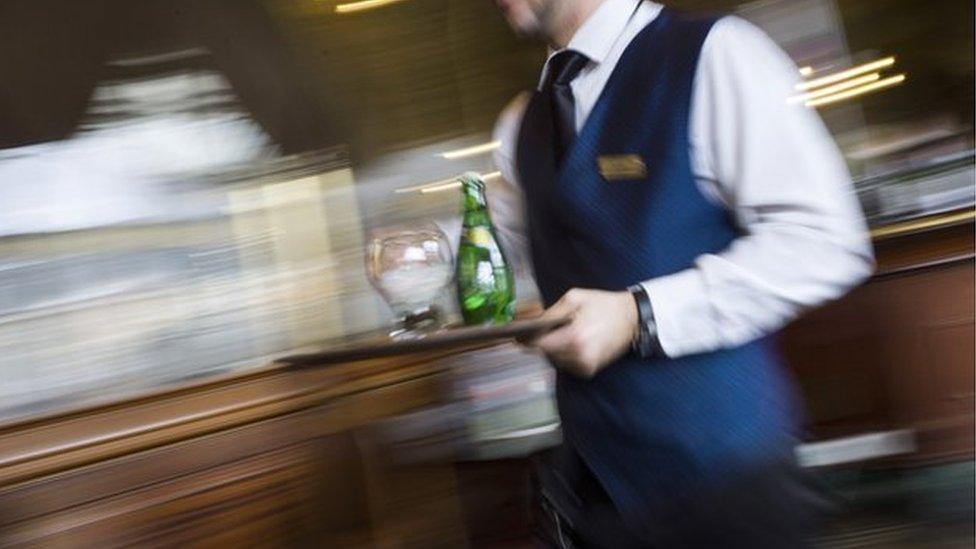
- Published16 August 2014
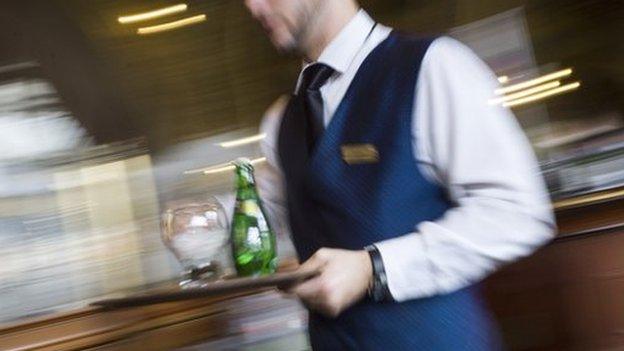
- Published2 April 2012
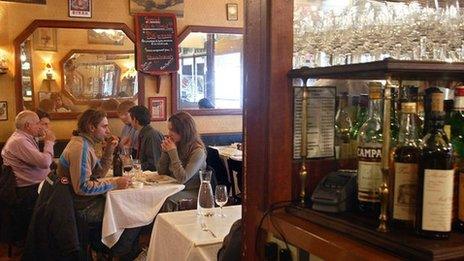
- Published9 January 2024
